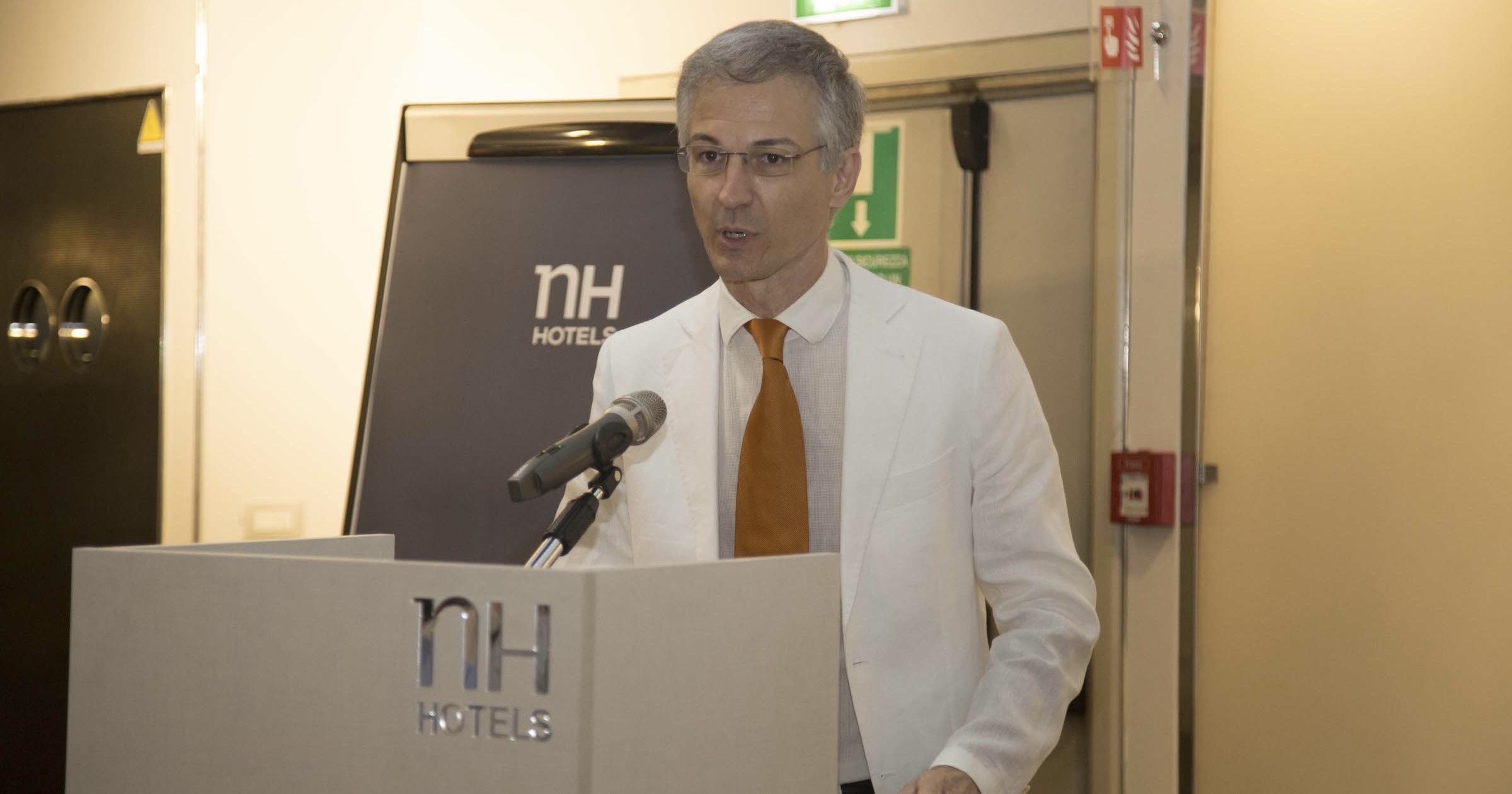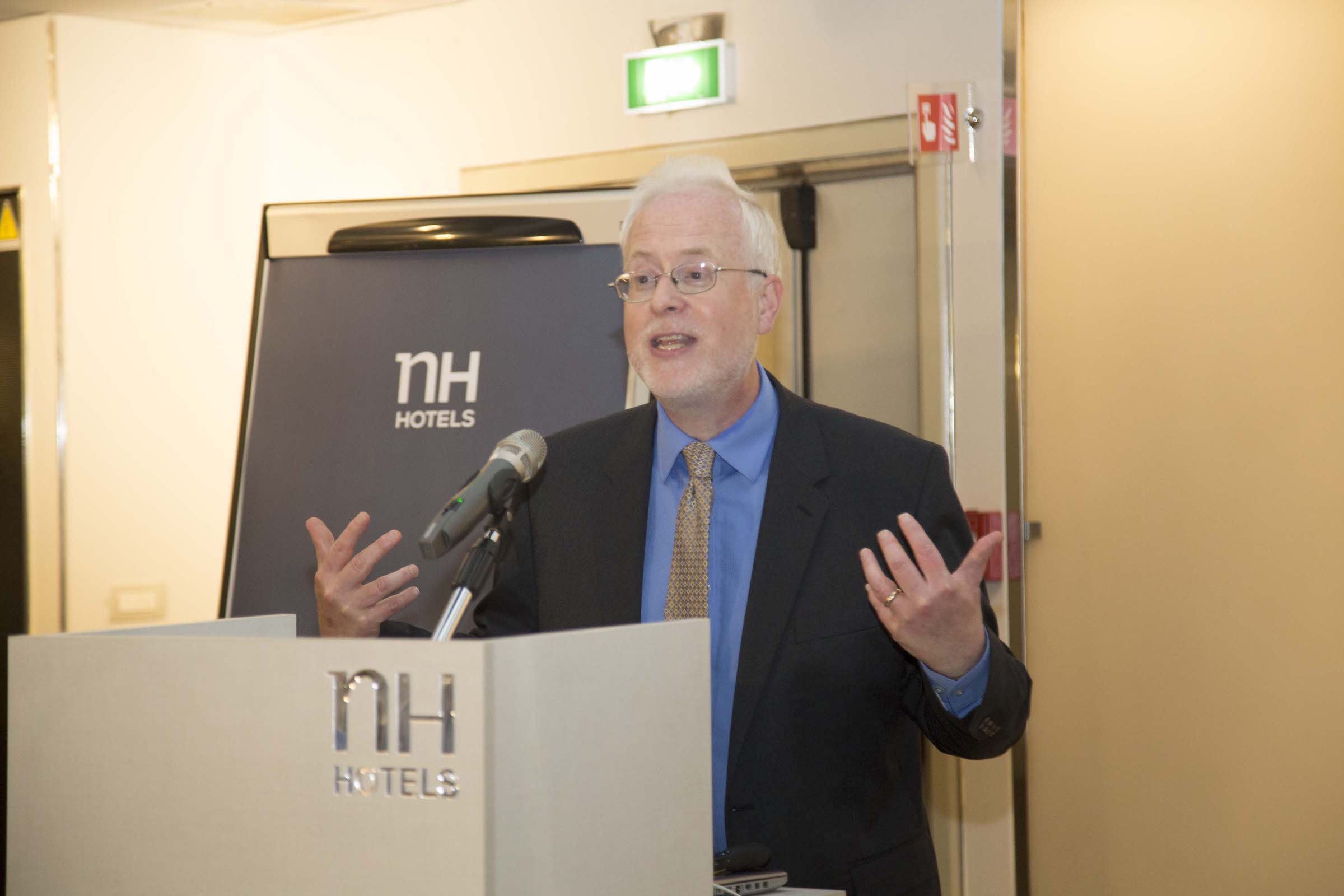 Evolution
Evolution
 Intelligent Design
Intelligent Design
Italian Center on Intelligent Design Holds Launch Event

Last weekend, a select group drawn from all over Italy convened in the historic city of Turin for the inaugural public conference of the non-profit Intelligent Design Center of Italy (CIID). CIID has been in existence for a few years, but the COVID-19 pandemic delayed its formal launch event until this summer. The conference was co-sponsored by the Center for Science & Culture (CSC) at Discovery Institute.
CIID operates an educational website as well as supplying Italian subtitles for many videos on the Center for Science & Culture’s Discovery Science YouTube channel. CIID also hosts its own YouTube channel.
Featured speakers at the event on June 18 included CIID president Carlo Alberto Cossano, physicist Ferdinando Catalano, paleontologist Günter Bechly, and political scientist John West. The event was introduced and emceed by veteran Italian journalist and human rights activist Marco Respinti. The proceedings were filmed and should eventually be made available on YouTube.
The First Talk
Carlo Alberto Cossano (pictured at the top) delivered the first talk. A professional computer scientist who works in the medical industry, Cossano defined intelligent design, explained foundational concepts of intelligent design such as information and specified complexity, and outlined the mission of the Italian ID society.
“Intelligent design is not based on the ‘God of the gaps,’” emphasized Cossano.
It is not the forced invocation of some smoky supernatural engine devised when a complex phenomenon cannot be explained. It is rather a positive argument, based on the uniform and repeated experience that every man has always had of the relationship between a cause and an effect. A concept that underlies science itself. In other words, it is not based on what man does not know, but on the contrary, precisely on what man knows: Intelligence is a necessary and sufficient condition for the production of new complex and specified information.
Cossano was followed by physicist Ferdinando Catalano. Formerly a professor at both the University of Padua and the University of Molise, Catalano is a well-published and award-winning scientist in the area of optics. Catalano discussed the exquisite fine-tuning of the human eye and provided a detailed explanation of the eye’s optical system. Catalano explained that the optical angle required to distinguish objects and the “anatomical-geometric angle of the human eye coincide: perfectly, incredibly, extraordinarily.”

Next up was paleontologist Günter Bechly (above), a Senior Fellow at the Center for Science & Culture and chair of the Center for Biocomplexity and Natural Teleology in Austria. Bechly outlined the severe waiting time problem faced by Darwinian evolution and also discussed the species pair challenge to Darwinism. According to Bechly, “the time windows available” in natural history “are much, much shorter than those that would be necessary to trigger and then fix the genetic changes postulated by evolution. Those paleontological time windows are set very precisely from the fossil records available to science and therefore cannot be ignored.”
Science, Past and Present

The last talk was given by Discovery Institute Vice President John West (above), also the Managing Director of the Institute’s Center for Science & Culture. West explained the key role played by intelligent design assumptions in both the history and current operation of science. West pointed out that
scientific investigation proceeds because scientists assume for the sake of their research that what they are studying is orderly and reflects a rational purpose. In other words, scientists have to treat what they are studying as if it was intelligently designed in order to understand it.
As a result, “the reality is that intelligent design is a guiding assumption for scientific research even for those scientists who claim not to believe in it.”

West also discussed why the debate over intelligent design matters to both science and culture. Finally, he reported on the growing number of scientists around the world who are either expressing skepticism toward traditional Darwinian theory or embracing intelligent design.
As West noted, throughout history philosophers, scientists, and theologians in Italy have made important contributions to the debates over both evolution and intelligent design.
In ancient Rome, statesman and philosopher Cicero provided a detailed discussion of the evidence for nature’s intelligent design in his dialogue De Natura Deorum. Cicero wrote:
When we see something moved by machinery, like an orrery or clock or many other such things, we do not doubt that these contrivances are the work of reason; when therefore we behold the whole compass of the heaven moving with revolutions of marvelous velocity and executing with perfect regularity the annual changes of the seasons… how can we doubt that all this is effected not merely by reason, but by a reason that is transcendent and divine?
In the 1600s, famed astronomer Galileo deepened our understanding of nature’s intelligent design by arguing that the universe is “written in mathematical language” (“scritto in lingua matematica”), an idea that has continued to inspire wonder and discussion among many contemporary scientists.
In the 20th century, meanwhile, distinguished Italian geneticist Giuseppe Sermonti signed the Dissent from Darwin declaration and criticized Darwinism as “the ‘politically correct’ of science.”
Why Turin?
The city of Turin was an especially fitting place for the public launch of a group focusing on intelligent design. The first capital of the Kingdom of Italy, Turin and its citizens and institutions have played important roles in debates over Darwin and design in the past.
Turin’s Academy of Sciences, founded in the 1700s, enrolled none other than Charles Darwin himself as one of its members. In the latter part of the 19th century, the University of Turin became the academic home of outspoken Darwinian criminologist Cesare Lombroso, who argued that many criminals were sub-human throwbacks to earlier stages of evolution. To this day, you can see Lombroso’s skeleton on display at a museum in Turin that houses Lombroso’s gruesome collection of human skulls and other materials from the criminals he studied. Turin even hosted multiple “human zoos” that publicly displayed people from non-white races as examples of humans who had not evolved as far as whites.
Now an intelligent design conference in Turin has opened the door to a new chapter in Italy’s contributions to the design debate. “Fascinating, full of implications, the ‘intelligent design’ hypothesis begins today its long road in Italy,” concluded journalist Marco Respinti.
